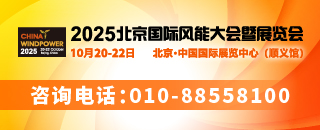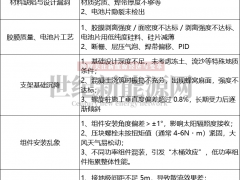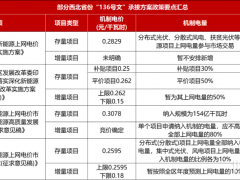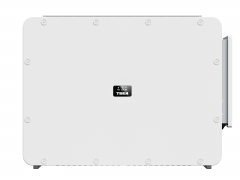目前,太阳能发电的模式主要有两种:一种是利用以硅为原料的光伏电池直接把阳光转化为能量的光伏发电,另一种则是利用太阳能聚光及热转换系统发电的光热发电。这两种太阳能发电模式能否并用,其优点能否集于一体呢?斯坦福大学研究人员最近公布的一项新太阳能技术给了人们肯定的答案――他们研制的PETE装置利用半导体材料铯涂层可将效率提高至60%,3倍于现有水平。

屋顶太阳能电池板利用硅将光转换成电能,但其效率在高温条件下迅速下降,而现有光热发电系统由只能利用光热发电,鱼与熊掌不可兼得。但斯坦福大学的研究人员发现了一种半导体材料铯涂层,可以将光和热同时转换为能量。
新技术可提高热离子发射光子,研究人员简称之PETE。PETE设备还有一很大的优点,它可以方便地安装入现有廉价的太阳能收集系统中。
PETE 设备只需要少量的半导体材料,价格相当低廉。 设计团队还希望其设计可以很容易地固定在现有太阳能收集设备上,以降低太阳能发电成本。
与热转换系统同时使用时,PETE装置效率可高达到60%。然而,即使PETE只将效率提高至30%,也能促使太阳能发电价格下降低至石油价格,这是一个巨大的飞跃。


We currently have two types of solar energy: energy generated from light, using silicon-based photovoltaic cells, and energy generated from heat, using solar concentrators and heat-conversion systems. What if we could collect both types of energy at once? Stanford researchers recently unveiled a new solar tech that can do exactly that ― their PETE devices utilize a semiconducting material coated with cesium to boost efficiency levels up to 60 percent ― three times that of existing systems.
Rooftop solar panels use silicon to convert light into electricity. But their efficiency declines rapidly at higher temperatures (like those needed to power heat-conversion systems). An either/or choice presents itself ― but Stanford researchers found that a cesium coating allowed semiconducting materials to convert both light and heat into energy.
They dubbed the process PETE, for photon enhanced thermionic emission. Best of all, PETE devices could be cheaply and easily incorporated into existing solar collection systems. (Because the system hits peak efficiency at over 200 degrees Celsius, it’s not a good fit for rooftop arrays.)
PETE devices require only a small amount of semiconducting material, making them cheap. Melosh’s team also hopes to design devices that can easily be bolted on to existing solar collection systems, so that conversion would also be low-cost.
When used with the heat-conversion process, PETE devices could reach 60 percent efficiency. But even if they boost efficiency just to 30 percent, they will bring solar power down to the price point of oil. And that’s a good thing.
 微信客服
微信客服 微信公众号
微信公众号









0 条